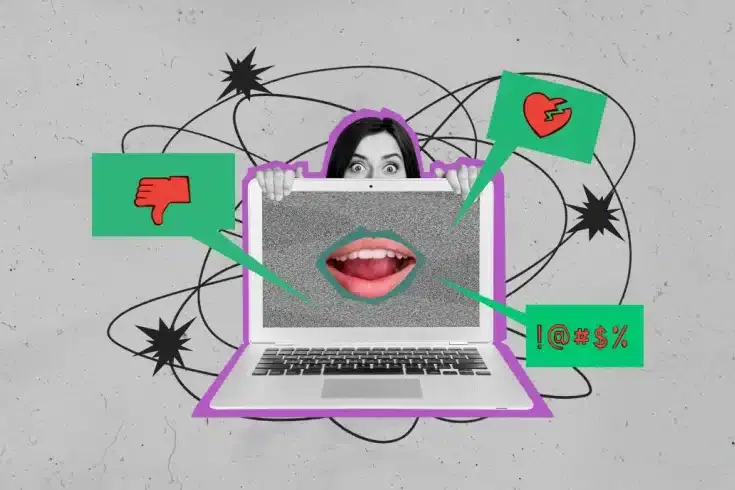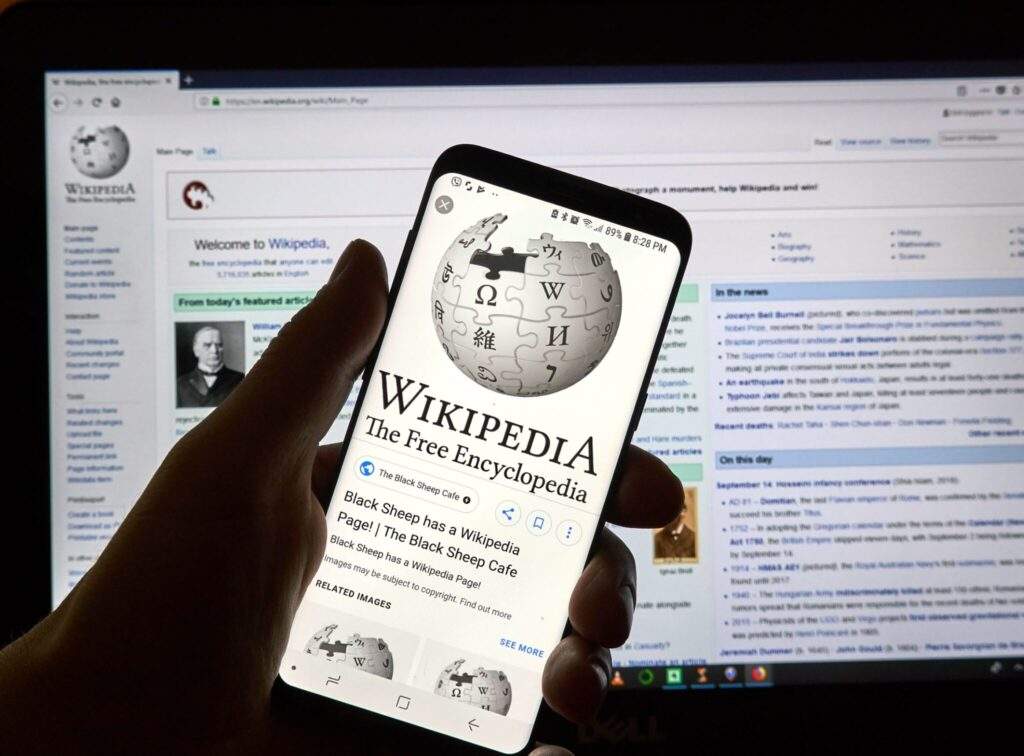Contract Document for Virtual YouTubers (VTubers) Affiliated with Agencies

The VTuber market has grown rapidly in recent years, with diverse activity formats. Agencies and companies contracting with VTubers must adopt approaches distinct from traditional talent contracts, particularly regarding intellectual property rights such as trademarks and copyrights due to the use of motion capture technology for character-based activities.
This article explains the main contract types for VTubers—employment contracts, quasi-mandate contracts, contract-for-work agreements, and talent exclusive contracts—and their characteristics.
It also details key contract points, including remuneration structures, exclusivity, cost burdens, confidentiality, character rights management, and image protection.
What is a “VTuber”
A VTuber (Virtual YouTuber) is a content creator who uses 2D or 3D avatars for content activities. The trend began with Kizuna AI‘s debut at the end of 2016 and gained rapid attention around 2017.
Initially focused on YouTube, VTubers now commonly operate across platforms. Motion capture technology records the performer’s (“inside person”) movements as digital data and reflects them on the avatar, making the character appear to move naturally for viewers.
VTubers’ rapid spread underscores the need to understand related legal issues.
Contract Types for Casting VTubers
Agencies affiliating VTubers primarily use employment contracts, quasi-delegation contracts, or contract-for-work agreements. Each type carries distinct legal features and constraints, therefore parties must select the appropriate form based on VTuber activities and agency relationships.
The following sections describe each type’s characteristics and VTuber-specific applications.
Employment Contracts
Employment contracts require workers to work under employers’ directions, with employers promising wages in return. Japan’s Labor Standards Act protections apply, including minimum wage and working hour rules; companies bear social insurance costs, and dismissals face restrictions.
VTuber employment contracts apply to agency-exclusive streaming or video production, or ongoing corporate PR roles. Terms generally run 3 or 5 years as fixed-term contracts. Schedules and content follow work rules; remuneration commonly combines fixed salaries and commissions.
However, VTuber activities demand creativity and flexibility, so quasi-mandate contracts prove more common than employment contracts.
Quasi-Mandate Contracts
Quasi-mandate contracts, a form of business consignment, delegate de facto acts (unlike mandate contracts for legal acts).
Unlike contract-for-work agreements that target completion, quasi-mandate emphasizes process execution without results liability.
VTuber quasi-mandate contracts do not guarantee results like viewer counts or revenue from business execution. They target the performance of the activities themselves and represent a common form for agency agreements. Although remuneration is not required, agency contracts typically conclude as paid arrangements.
Contract-for-Work Agreements
Contract-for-work agreements promise job completion for remuneration based on results. VTubers often use them for one-off PR or projects.
They differ from quasi-mandate contracts by prioritizing deliverables over process; and unlike employment contracts, labor laws do not apply, allowing execution flexibility.
What is a “Talent Exclusive Contract”

Purpose of the Talent Exclusive Contract
A “Talent Exclusive Contract” generally refers to the contract that a talent signs when joining a talent agency.
The contract stipulates that the talent will exclusively perform entertainment activities for the talent agency they belong to, and in return, the talent agency will support the talent’s entertainment activities.
Legal Nature of the Talent Exclusive Contract
VTuber contracts often combine employment, quasi-mandate, and contract-for-work contract elements into an talent exclusive contracts. These are atypical contracts, not stipulated in the Civil Code. The legal nature of a talent exclusive contract can be considered in the following ways:
- Courts view them as mixed mandate-employment/contract-for-work (Tokyo Dist. Court, July 18, Heisei 13 (2001)).
- It is considered a quasi-mandate or a similar unnamed contract (Tokyo District Court, June 13, Heisei 12 (2000)).
As such, court precedents diverge in their views on determining the legal nature of a talent exclusive contract, and depending on this, the requirements for termination of the contract and whether there are unavoidable reasons for cancellation of the contract may change.
Specific contract terms on activities, rights, and pay demand case-by-case review.
Key Clauses in Talent Exclusive Contracts
Talent exclusive contracts must clearly define agency-talent rights and duties.
Clauses on name usage, activity costs, remuneration, and exclusivity require careful review to prevent disputes. These clauses hold equal importance for VTuber agency contracts.
Examples below designate “Party A” as the agency and “Party B” as the talent (VTuber).
Clauses on Talent Name or Stage Name Use
Entertainment agencies often include a clause in their contracts that allows them to freely use the portraits and stage names of their talents for management purposes. If the relationship between the agency and the talent is good, it’s usually not a problem for the talent to freely use their portrait and stage name.
Portrait and stage name use becomes problematic upon contract termination, such as talent independence. While largely due to the talent’s efforts, these names gain customer appeal through agency management. It is desirable to have a clause that both parties can agree on through discussions between the entertainment agency and the talent. Thus, contracts often require prior agency approval for continued use of the same stage name after termination.
Article ○ (Use of Name, etc.)
1 The entertainment agency (hereinafter referred to as “Party A”) or a person designated by Party A may freely use the talent’s (hereinafter referred to as “Party B”) real name, stage name, abbreviation, photos, portraits, handwriting, biography, and all other matters related to Party B (hereinafter referred to as “Name, etc.”) for the production, sale, distribution of products and sales promotion materials, and for sales, advertising, and publicity, without charge, and Party B shall actively cooperate with this. In addition, during the term of this contract, Party B shall not permit the use of Party B’s Name, etc. for the production, sale, distribution of products, services, sales promotion materials, and other purposes by anyone other than Party A or a person designated by Party A.
2 The right to license the merchandising rights (the right to use Party B’s Name, etc. on products) to third parties and the right to receive usage fees shall exclusively belong to Party A.
3 Party A or a person designated by Party A may freely use Party B’s Name, etc. without charge for the use of master tapes produced during the term of this contract and for sales promotion materials, etc., even after the termination of this contract.
Article ○ (Prior Approval)
Party B shall not use the Name, etc. after the termination of this contract. However, this shall not apply if Party A has given consent to the use of the Name, etc.
Clause on Activity Cost Burdens
Talent activities generate substantial costs, including lessons, costumes, and travel. Failure to specify burdens in the contract can lead to disputes over agency or talent responsibility.
Therefore, contracts must clearly allocate these burdens, as determined by negotiation between the parties. The following example assumes agency coverage:
Article ○ (Burden of Costs)
1 Party A shall bear the expenses related to the provision of services and the granting of licenses based on this contract (including lesson fees and costume fees).
2 All other costs shall be borne by Party B.
Remuneration Clause
Entertainment agencies concern with how much remuneration to give to the talent, and talents concern with how much they can receive. When money is involved, there is a high chance of disputes, so it is important to clearly state the content.
There are various forms of remuneration, such as a pure commission system, a fixed remuneration system, and a fixed remuneration plus commission system. The common pure commission example follows:
Article ○ (Remuneration for Talent)
1 All payments by third parties in connection with talent services (hereinafter referred to as “Sales”) shall belong to Party A. If the Sales are deposited into an account managed by Party B, Party B shall pay the full amount to Party A by transferring it to an account designated by Party A within one week.
2 Party A shall pay Party B the remuneration stated in the schedule as consideration for Party B’s talent services.
Note that this clause assumes the VTuber (talent) handles so-called client projects commissioned by third-party corporate clients. Separately, allocate received client payments between agency and talent via other clauses or individual agreements.
There may be cases where it is not clear what percentage of the amount received by the entertainment agency from the client is the agency’s share and what percentage is the talent’s share. For details on client project contracts, see the related article below.
Related Article: Key Points of Corporate Contract Documents for Virtual YouTubers (VTubers)
Exclusivity Clause
In an exclusive talent contract, the exclusivity clause is also a very important clause. First of all, if exclusivity is granted, talents affiliated with an entertainment agency can only engage in talent activities through the agency they belong to, prohibiting other agencies or independent work.
Agencies investing time, effort, and funds in managing the talent cannot expect returns if talents bypass them. Therefore, it is necessary for the entertainment agency to include an exclusivity clause. Specifically, the following clause can be considered:
Article ○ (Exclusivity)
During the effective period of this contract, Party B shall only perform the talent services stipulated in Article ○ for Party A, and shall not perform these services for themselves or for any third party other than Party A.
The exclusivity clause is often a source of disputes between entertainment agencies and talents, so in order to prevent disputes from occurring, it is necessary for the entertainment agency to thoroughly explain the exclusivity to the talent.
Important Clauses in Contracts for Virtual YouTubers (VTubers)

Clauses on Character Names and Stage Names
One unique feature of character names and stage names used by VTubers is that, unlike natural persons, they can be trademarked. Once a character name or stage name is registered, anyone other than the trademark owner is prohibited from using that name in the same category as the registered trademark. Therefore, it is absolutely necessary to trademark register the character names and stage names used by VTubers. However, the next issue is to clearly establish the ownership of the trademark rights and, in some cases, necessary to include provisions regarding trademark licensing in the contract.
Agencies typically own trademarks and grant licenses to VTubers. Clauses must thoroughly scrutinize the content and specify permitted use scope, license fees and payments, and termination conditions.
Clauses on Copyrights of Character Images and Videos
In addition to trademark rights, there are copyrights associated with the rights of VTuber characters. Unlike trademark rights, copyrights do not require applications for registration and are generally granted to the creator of the work at the time it is created. For the copyright of VTuber characters, if the agency owns at creation, it licenses to the VTuber. If VTuber-owned, the agency requires transfer; retention prevents effective management.
Do Characters Have “Copyright”?
However, there is dispute over whether characters can be recognized as copyrighted works in the first place.
The Japanese Supreme Court ruled manga characters—depicted repeatedly with consistent names, appearances, and roles—not protected (Sup. Ct., July 17, Heisei 9 (1997), Minshū vol. 51 no. 6 p. 2714). Following this ruling, it can be considered that copyright does not arise in the character itself. Therefore, when considering the transfer of copyright of a character, it is insufficient to transfer the abstract character itself, and only the embodied work can be the subject of copyright transfer.
In order for a management agency to receive all copyrights related to a character from a VTuber who owns the copyright of the character, it is necessary to specify the copyrighted work in the contract.
Specifically, the following two contents need to be described in the clause on copyright transfer:
- Content on the transfer of rights related to works that have already been drawn in illustrations, videos, images, etc. and embodied as copyrighted works (transfer of all past copyrights)
- Content on the transfer of rights related to works that will be drawn in illustrations, videos, images, etc. in the future and created as copyrighted works (transfer of all future copyrights)
Article ○ (Transfer of Copyright)
Party B hereby transfers to Party A, as of the date of this Agreement, all copyrights (including but not limited to the right of reproduction, broadcasting, translation, film adaptation, the right to use derivative works based on this work, and the rights stipulated in Articles 27 and 28 of the Japanese Copyright Law, hereinafter referred to as “this copyright”) of Party B’s work “○○” (hereinafter referred to as “this work”) and the copyrights of Party B’s works that will be created during the term of this Agreement in connection with this Agreement, and Party A accepts this transfer.
By including the above content in the contract, the copyrights of illustrations, etc. published by the VTuber on SNS such as X and Instagram during the contract period will be attributed to the management agency.
It is very important to have such clauses in place, especially in relation to the potential sale or business transfer of the VTuber. VTubers can be the subject of M&A and business transfers.
For details on client VTuber M&A, see the related article below.
Related Article: Acquisition and Business Transfer of Virtual YouTubers・VTubers
Clause Specifying VTuber Duty of Care
The fundamental obligations of VTubers involve creating and editing videos in accordance with their contracts with management companies, and distributing these videos. However, while the design of the VTuber’s character is important, the image of the character holds significant importance due to the nature of video distribution.
For instance, if a management company wishes to cultivate a character with a pure and adorable image targeted at children, and the VTuber distributes videos that could negatively influence children, or posts on social media that could damage the character’s image, the value of the character could decrease. Therefore, it is necessary for VTubers to maintain the image of their characters. As such, it is crucial to include a clause in the contract stating that VTubers should exercise the care of a prudent manager and refrain from any actions that could harm the character’s image. Once a character’s image is damaged, it is extremely difficult to restore.
To prevent VTubers from engaging in any actions that could damage the character’s image, it is advisable to specify in the contract that if a VTuber does engage in such actions, they will be liable for damages, and the amount of these damages should be clearly defined.
Confidentiality Clause
As previously mentioned, the image of a character in VTubers is extremely important. Therefore, it is often the case that information such as who is voicing the character or who is in charge of the motion is kept confidential.
Beyond general confidentiality obligations, contracts must include expanded provisions such as the following:
Article ○ (Confidential Information)
The term “information” in this Agreement refers to all information disclosed by Party A to Party B in relation to this project, regardless of whether it is in writing, orally, or in the form of an object. This includes all information related to the formation of the character’s image, such as the fact that Party A and Party B have entered into this Agreement and the fact that Party B is providing this project.
Corporate Considerations in VTuber Contracts
Companies contracting with VTubers must first prepare appropriate contracts. Involve experts such as attorneys to draft mutually agreeable terms. For independent VTubers, avoid one-sided conditions and build trust through proper communication.
Pre-contract verification proves essential: confirm identity and age. VTubers often withhold real names and ages, but paid work requires addresses and names for withholding tax forms. Obtain parental consent for minors.
Clarify remuneration structure, working hours, term, scope, specific instructions, confidentiality scope, and SNS posting guidelines. Address delays in project progress or required changes.
Further, specify responses to incidents. Detail handling of scandals or defamation, plus company support measures, to protect VTubers appropriately. These measures enable companies and VTubers to form strong partnerships for successful projects.
Summary: Key Points and Future Challenges in VTuber Contracts
VTuber agency affiliation contracts build on traditional talent exclusive contracts but require unique forms tailored to character characteristics.
Contract drafting must prioritize proper management of trademarks, copyrights, and related rights. This includes clearly defining ownership of character names, images, and videos to enable agency control.
VTubers operate primarily online, exposing them to rapid fame or unforeseen troubles unlike conventional talent activities. Detailed preemptive contracts thus play key roles in preventing issues.
Essential clauses cover character image protection, confidentiality duties, SNS posting guidelines, and incident response policies. Proper inclusion fosters secure activity relations for agencies and VTubers alike.
As the VTuber industry evolves, contract forms will change. Flexible arrangements balancing legal frameworks and practical needs remain essential.
Introduction to Our Firm’s Measures
Monolith Law Office is a legal office with high expertise in both IT, particularly the internet, and law.
In recent times, the need for legal checks such as portrait rights, copyright, and advertising regulations has been rapidly increasing, even among YouTubers and VTubers when managing their channels.
It is also essential to thoroughly prepare in advance for issues related to contracts.
For details, see Monolith Law Office practice areas: YouTuber·VTuber Law.
Category: Internet





















